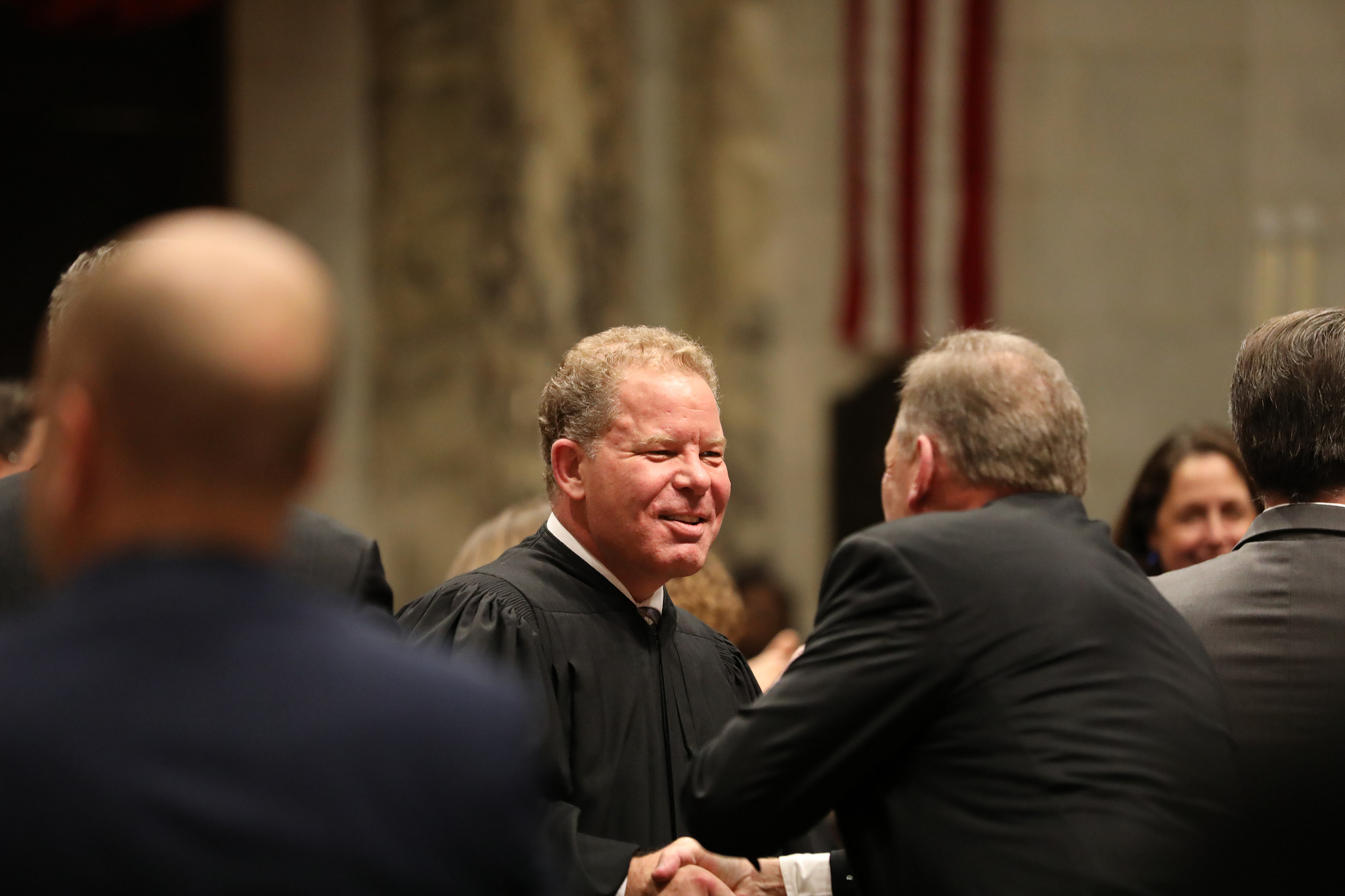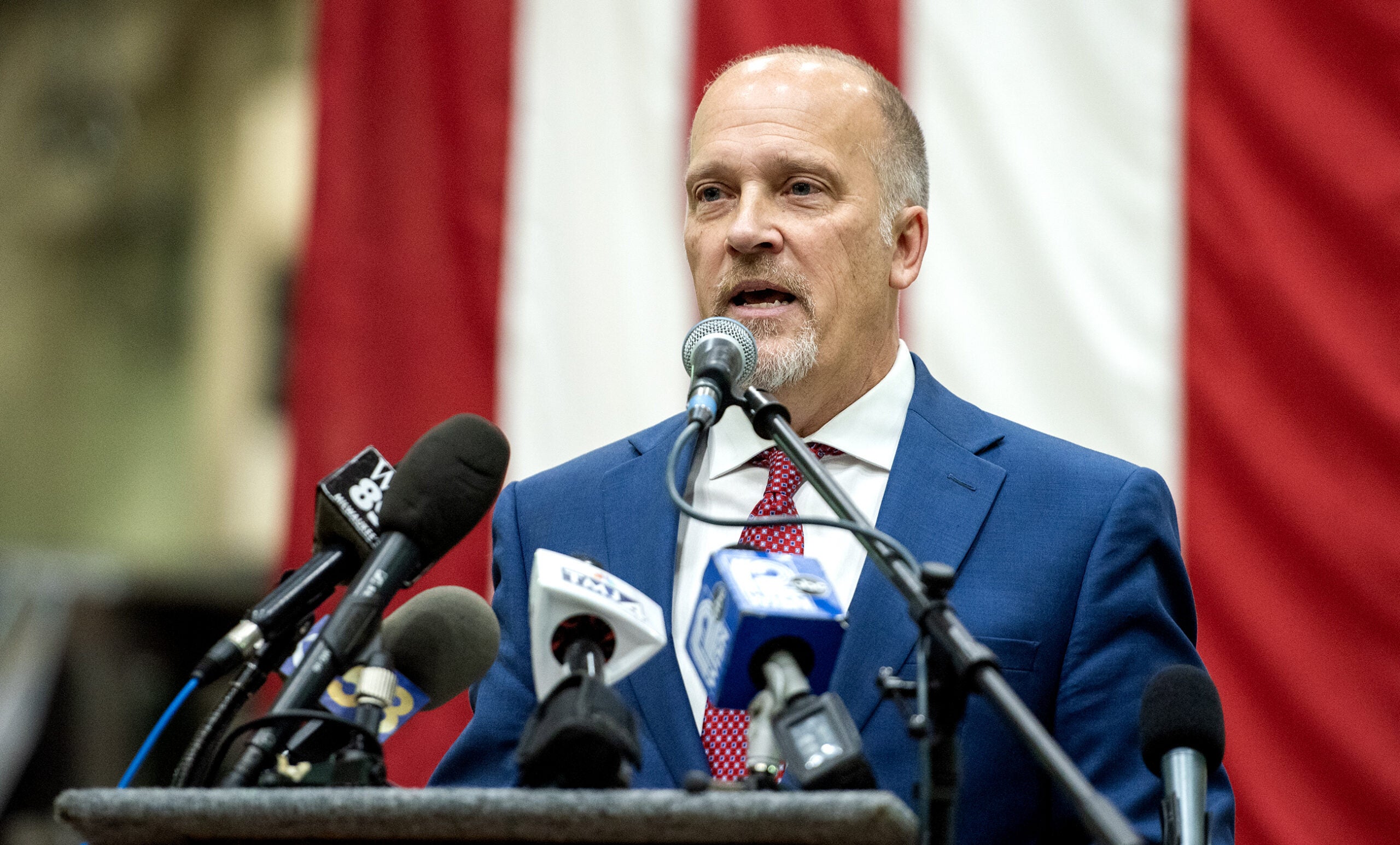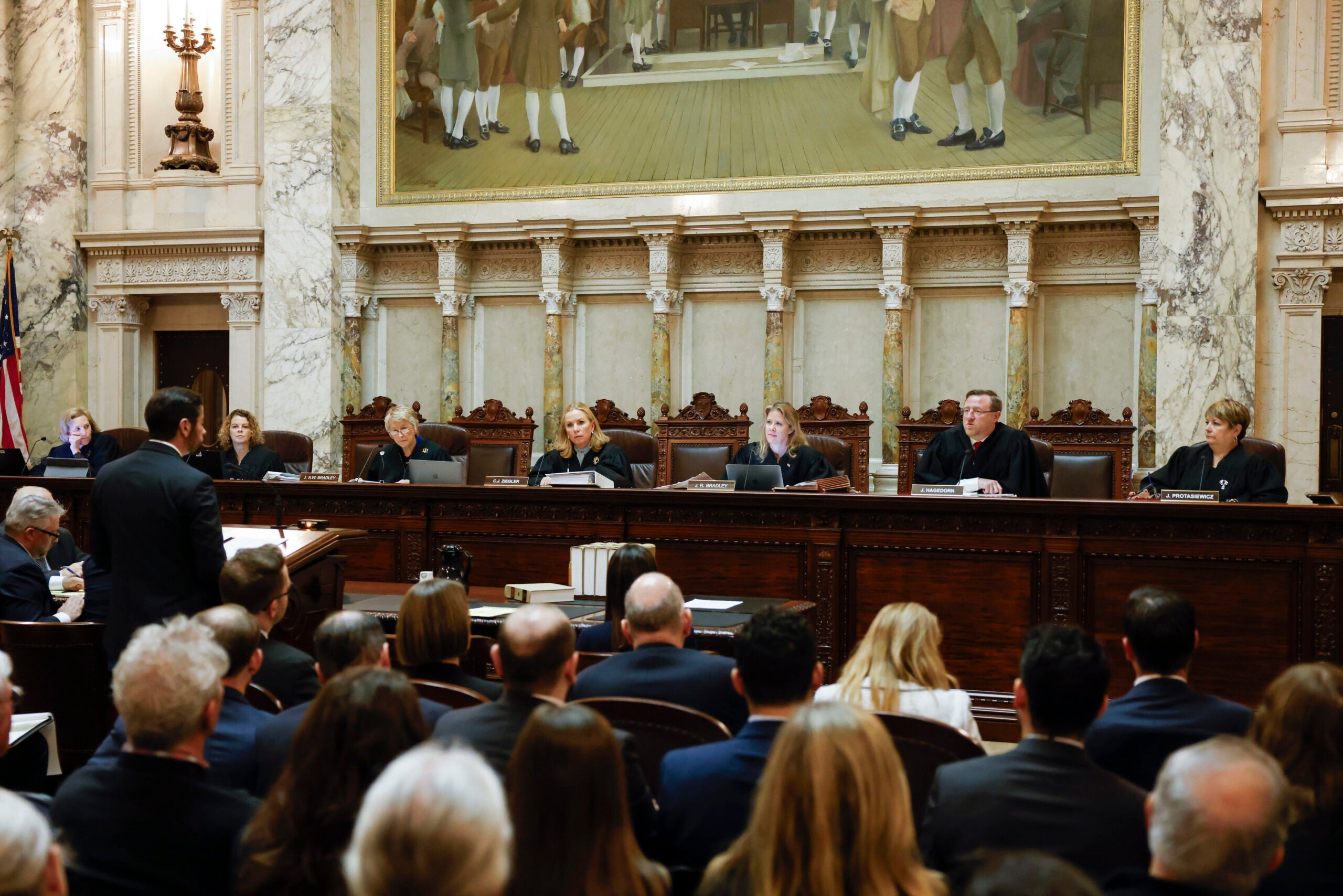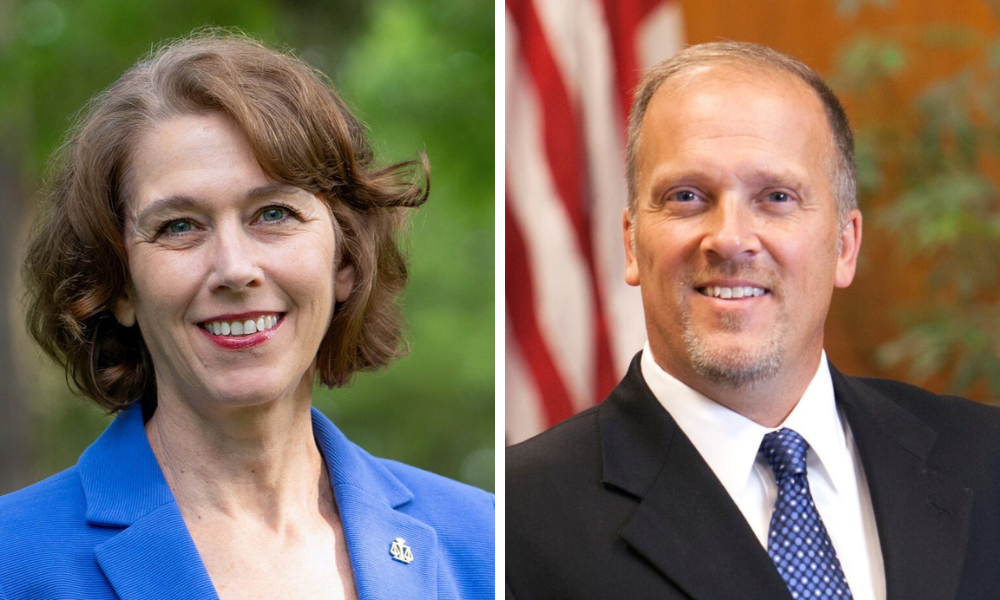Conservative Justice Daniel Kelly has formally announced that he will seek a 10-year term on the Wisconsin Supreme Court, saying he wants to continue the work he began when he was appointed to the bench three years ago by former Gov. Scott Walker.
Speaking at a press conference from the Wisconsin Supreme Court chamber, Kelly said he viewed the people of Wisconsin as his bosses, and said his judicial philosophy reflects that.
“We’ve been told by the people of Wisconsin they don’t want us to make the law, they just want us to apply it. And that’s what we do,” Kelly said.
Stay informed on the latest news
Sign up for WPR’s email newsletter.
Kelly was joined by Justice Rebecca Bradley, Justice-elect Brian Hagedorn and former Justice David Prosser, all candidates who were backed by Republicans in their officially nonpartisan campaigns.
Most recently, Hagedorn defeated Justice Lisa Neubauer by fewer than 5,981 votes out of more than 1.2 million votes cast, a victory he attributed to an outpouring of support he received from Republican grassroots activists.
Kelly said he shared a judicial philosophy with Hagedorn, and told reporters it had excited people who want to keep him on the court.
“They sought me out,” Kelly said. “They told me they wanted me to run. They said they would do whatever they can to help me in the campaign. And they’ve been with me every step of the way.”
Hagedorn’s race was marked by a focus on his past writings, namely blog posts in which he attacked the Mormon faith and equated a Texas court ruling against an anti-sodomy law with the legalization of bestiality.
Kelly will have a public record of his own to discuss in his race. He wrote a chapter in a 2014 book that compared affirmative action to slavery, saying that while they differ in significant ways, both were examples of forcing people into unwanted economic relationships.
Asked about the chapter at his announcement, Kelly said it was similar to a stance taken by U.S. Supreme Court Justice Clarence Thomas, whom Kelly called “one of the finest jurists this country has had the pleasure of seeing on that court.”
“He once wrote that there is a moral and constitutional equivalence between laws that subjugate races to slavery and those that distribute benefits based on a current notion of fairness,” Kelly said. “Justice Thomas ought to know something about that. Not incidentally he’s a black man, and the grandson of sharecroppers. I figure, I can’t disagree with Justice Thomas.”
Already, Dane County Circuit Court Judge Jill Karofsky and Marquette University Law Professor Ed Fallone have announced they’re running for Wisconsin Supreme Court. Hours after Kelly’s press conference, both candidates touted new endorsements.
Justice Rebecca Dallet, one of the Wisconsin Supreme Court’s three liberals, said in a campaign email that she was backing Karofsky.
“As a judge, as a prosecutor, as the director of the state office for victim services, and as a community leader, Jill Karofsky has what it takes to make our system better,” Dallet said. “She’s a tremendous athlete, and she’s tough as nails. And most importantly, Jill shares our values and will stand up for a better Wisconsin.”
Fallone’s campaign touted the endorsement of Madison attorney Tim Burns, an outspoken progressive who lost to Dallet in the 2018 Supreme Court primary.
“I’m endorsing Ed Fallone because he’ll defend the right of people to govern themselves, to have their votes counted, to live in districts that are not gerrymandered and to elect officials who understand that they represent not just a narrow set of interests, but all Wisconsinites,” Burns said.
With at least three candidates in the race, the field will be narrowed to two in a February primary.
The election itself will be held April 7, the same day as Wisconsin’s presidential primary. That could boost turnout among liberal voters if there’s still a competitive Democratic presidential race.
Editor’s note: This story was updated with original reporting from WPR.
Wisconsin Public Radio, © Copyright 2025, Board of Regents of the University of Wisconsin System and Wisconsin Educational Communications Board.




